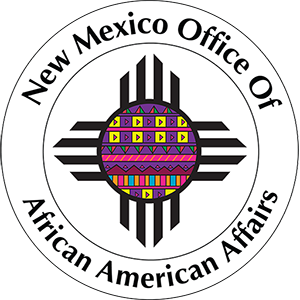No Fear
I have lived and called NM home since 1989. I attended and proudly graduated from Highland High School in 1993. I received an associate degree in liberal arts from Central New Mexico Community College and a bachelor of elementary education from New Mexico Highlands University. These institutions of higher education are both highly recognized for their 2 and 4-year degrees in our land of enchantment. I utilized my degrees to acquire a level II professional teaching license and return to our public school system as an educator. Yet, during this journey, I never learned nor was I aware of the established community of Blackdom.
Founded over a hundred years ago, the historical impact it had on the economic, educational, religious, and agricultural growth of our state cannot be denied. I attended a symposium that challenged the current and accepted version Blackdom’s establishment. Dr. Nelson’s thesis sets proves that the community was not established out of fear of slavery, fleeing the post-civil war Jim Crow laws. It was founded upon the venture capital opportunities, ideology, and the intrinsic ambition to improve the founders and Blackdom residence’s lives. They achieved this outcome through strategic planning and capitalization/utilization of government policies and resources of that era. [i]
The historical significance of Blackdom, although not lost, has been overlooked and marginalized by our public education system, lost in an obscure veil, and perpetuated myth of “Tri-culturism” within our state. House Bill 043, The Black Education Act, is an important piece of legislation that will allow the Black Education Act Team, led by Deputy Secretary Dr. Vickie Bannerman at the New Mexico Public Education Department, to align curriculum and instructional frameworks to the 2023 social studies standards. Thus, allowing Black/African American students to be introduced to how culturally relevant they are in our state of New Mexico. Professional development for administrators and educators is also written into the bill. [iii] Black/African American experts in education, economic development, and health have the opportunity to include an accurate narrative of contributions that Black/African Americans in Blackdom provided to their community and surrounding developing communities.
Dr. Nelson utilized various forms of qualitative data including, but not limited to, original newspaper articles from surrounding states, government documents related to the Homestead Act of 1862[iii], deeds, maps, and other supportive peer-reviewed research to prove Blackdom was known throughout the southwest as a thriving industrious community, that had several large businesses including an oil company.
The consensus among Dr. Nelson and his colleagues asserts that Black/African American contributions to New Mexico continue to be underrepresented in the historical record. The counter-narrative that Dr. Nelson achieves is inspiring and will serve as a solid curriculum and instructional framework for the Department of Anthropology at UNM. Higher education institutions throughout New Mexico would be wise to examine Dr. Nelson’s research. The New Mexico Public Education Department Equity Council should consider incorporating Blackdom as a foundational point of reference, from which our current history as Black/African Americans in New Mexico can be derived. Our Black/African American communities should begin to inform their family and friends about the significant historical context and debunk the false narratives.
